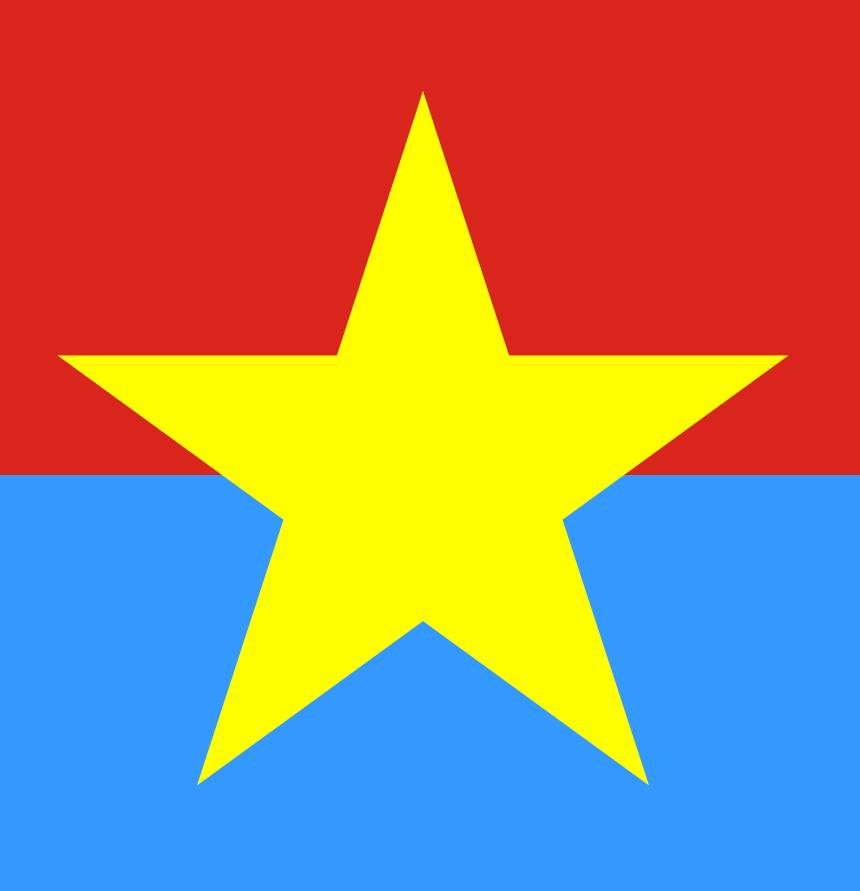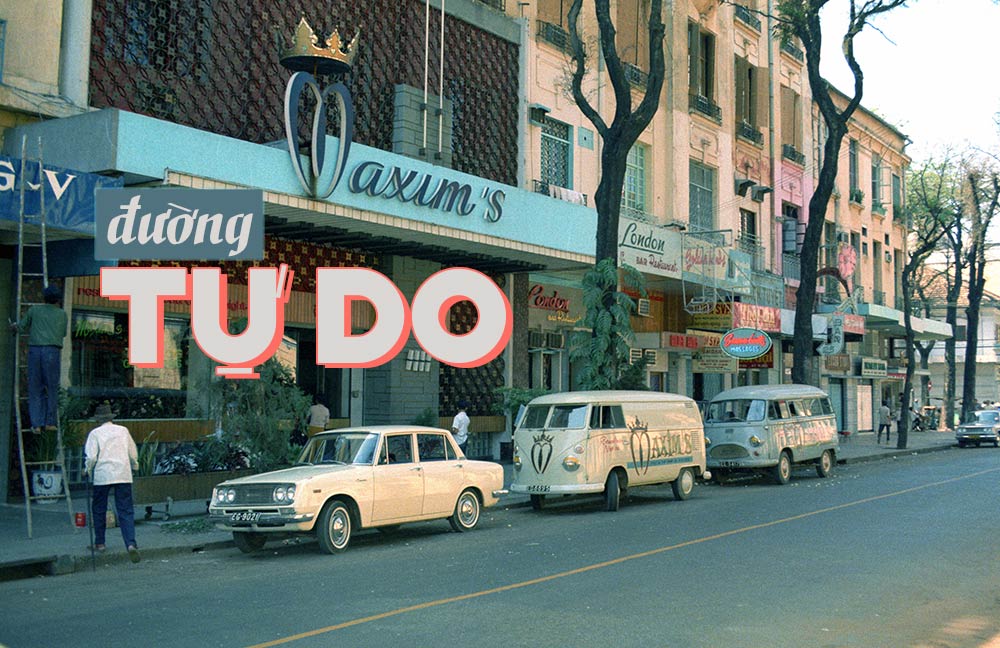
During the French period, Vietnamese people were quite free to publish newspapers. Mr. Hoang Tich Chu owned four major newspapers in Hanoi in the 1930s, to have a voice to protect Vietnamese culture.
He became the editor of four major newspapers, overturning the concept of contemporary newspaper writing in the 1930s in Hanoi, causing a lot of controversy and attracting a lot of criticism, but many people imitated his writing style. There may be conflicting opinions when evaluating him, but he has devoted his whole life to the development of Vietnamese journalism.
Hoang Tich Chu was born in 1897 in Phu Luu village, Tu Son district, Bac Ninh province into a mandarin family. Those were the last years of the 19th century, the early years of the 20th century, when the French occupied our entire country.
Western civilization penetrated Vietnam and began to develop. The old way of learning has been destroyed by the new way of learning of Western civilization.
In his teenage years, Hoang Tich Chu studied Chinese characters, and also took exams in the final exams of the Confucian literature school but did not pass. His family was also somewhat sad, but that was a blessing for his life.
Sensitive youth, Hoang Tich Chu turned to learning French. In 1921, he worked for the editorial office of Nam Phong, a major magazine at that time owned by cultural writer Pham Quynh, father of today’s musician Pham Tuyen.
On July 15, 1921, Khai Hoa newspaper was born, founded by ethnic bourgeois Bach Thai Buoi, one of the four richest people in Vietnam at that time, a new bourgeois, and with a strong national consciousness.
Mr. Hoang Tich Chu was chosen by Bach Thai Buoi as editor. He began to sign the name Ke Thuong on articles (meaning that the Shang Dynasty was next to the Zhou Dynasty in Chinese history).
With this pen name, Mr. Hoang Tich Chu attracted special attention from the press and readers. A year later, due to a personal reason that happened in the editorial office, he said goodbye to Khai Hoa newspaper.
At this time, Hoang Tich Chu thought of going to France to learn journalism. But his family did not have enough money to support him to study abroad. In 1923, Hoang Tich Chu went to Saigon and asked his friend who worked on a ship to get a job as a kitchen assistant on a ship bound for France. Therefore, he went to Hong Kong, Shanghai and Japan before going to France.
While studying in France, Hoang Tich Chu and his close friend Do Van (a student at the College of Education) received monthly allowances from Albert Sarraut professor Le Huu Phuc. Hoang Tich Chu studied journalism, Do Van studied printing.
After completing their studies, the two returned to the country in 1927. At that time, professor Le Huu Phuc went to France to study literature and philosophy, with the hope that after Le Huu Phuc finished studying, the Chu-Van-Phuc trio would form a separate newspaper: managed by Hoang Tich Chu, edited by Le Huu Phuc, printed and distributed by Do Van.
But unfortunately, after finishing his studies, before he could return home, Professor Le Huu Phuc passed away in France.
During his time studying in France, Mr. Hoang Tich Chu focused on researching the role and beneficial effects of the press in the French bourgeois revolution. As a result, on May 9, 1927, before returning home, he completed in Paris the draft of the treatise “The story of the daily news during the French Revolution“. The booklet was published in Saigon by Xua Nay printing house at the end of 1927.
At the beginning of the booklet, the solemn preface was printed:
“If it’s really called sacrificing one’s life for one’s country, then whether by pen or sword, both sides have equal power.”
Next is the Preface, written briefly and concisely like a prose poem, containing a spirit, an ambition that moves people’s hearts, a declaration of journalism in our country with a fierce spirit, boiling up to fight.
“A life without freedom is a wasted life.
People have value because they have freedom.
Freedom to be human is available to everyone from birth.
When you lose your freedom, you have the right to demand, you don’t have to ask, no one will give you when you ask, you only demand to get what you want.”
With such noble ideals, returning to Hanoi, Hoang Tich Chu and Do Van immediately began applying the knowledge they had learned and long-cherished plans.
On June 1, 1927, Ha Thanh Ngo Bao was born. Hoang Tich Chu was assigned to take care of the editing work. Do Van takes care of printing and distributing the newspaper.
Around 1927, Vietnam our country’s press had experienced 60 years of development. In just 5 years (1922 – 1927), the number of newspaper and magazine titles published increased by 73%, and Vietnamese newspaper and magazine titles alone increased by nearly 90%. But the articles are still cumbersome, have little information, and are heavy because of the random writing style, full of cursive words, and difficult to understand anaphora.
Articles explaining morality, philosophy, and scholarship are lengthy and confusing, only for knowledgeable people. That’s why the number of readers is very small.
Hoang Tich Chu and Do Van implemented a series of reforms.
Hoang Tich Chu used a new writing style, neat, bright, rich in information, different from the old writing style, bringing a cool breeze, full of vitality, rich in life to the journalistic style at that time.
For a long time, newspapers often printed lengthy editorials, taking up two horizontal columns on the front page. Hoang Tich Chu wrote a short, sharp editorial, as concise as a slogan.
Previously, news was only printed on pages 2 and 3. Hoang Tich Chu had it printed on the front page, important news was printed prominently, reflecting breaking and timely news.
At first, readers were not familiar with Hoang Tich Chu’s Western-style writing, with short, blunt sentences. The author is considered eccentric and humorous. The disastrous consequence is that newspaper sales are stagnant and few people read it.
The newspaper owner had to invite the two reformers to quit.
“If life is like a game of chess, if you lose this game, you play another game, why do you have a pale face, weak limbs, cry out and say: failure?”
Hoang Tich Chu comforted himself like that, and set up his own newspaper.
It is the famous East-West newspaper.
No. 1 East and West was published in November 1929, Hoang Tich Chu used the pen name Van Toi, to officially affirm a new, clear and neat writing style to keep up with the rapidly changing life of the people. Vietnamese society is transforming into a new revolution led by the Communist Party, although Hoang Tich Chu is not fully aware of it.
Hoang Tich Chu’s newspaper mentions practical daily issues of the majority of people. A series of sections: Today, Beer of the Mouth, Strange Tales in the Forest, Black and White, Film… reflect the multifaceted aspects of everyday life, making the newspaper rich in information, closely related to life. of many people.
Dong Tay Newspaper also prints many attractive and funny pictures and illustrations. Hoang Tich Chu had full authority to carry out reforms, so Dong Tay Newspaper partly met the needs of society and was welcomed by the masses.
Dong Tay newspaper was considered the best-selling newspaper in the North at that time.
Hoang Tich Chu considered journalism a career in society.
In issue 2 of Dong Tay newspaper, he wrote:
“Journalism in our country to this day is still not a profession in its true sense, because there is no school teaching journalism in our country. We see it as a mental pastime. Journalists are just salary earners, that is, employees, so journalists work reluctantly.”
He criticized the public reporting style at that time:
“When setting up a newspaper, the owner only paid attention to money issues, instead of paying attention to the editor”…,
“The editor, although in the profession, does not know what role the daily newspaper plays? Daily newspapers for them are just editorials plus some news gleaned from the police station or translated from French newspapers, and do not understand that daily newspapers must cover current affairs: news in and out of the country. They flooded the newspaper columns with any news they found in Chinese or French newspapers” (East West No. 5, January 16, 1930).
He commented on the contemporary team of newspaper writers: “Newspaper owners believe that journalists are employees who go to the editorial office twice a day to write editorials and translate news to fill the newspaper column…
Where can we find the workers mentioned above? Most of them are poor and ignorant Confucian scholars, people with shallow knowledge but want to impress the world with their glossy and flowery sentences.
Although Hoang Tich Chu’s new journalistic writing style makes some people unfamiliar, some people feel uncomfortable, and some people attack him.
Even Tan Da is a great poet, with many contributions to poetic innovation, a herald of the new poetry movement, and at the same time an avid journalist, founding the first literary magazine in our country also criticized Hoang Tich Chu:
“This guy is so stubborn, who is me, we have to have our own name” (referring to the pen name Van Toi of Hoang Tich Chu – An Nam magazine No. 27, 1932).
But gradually the people who criticized him were influenced by his writing. Citizen and Humanity Newspapers… are most clearly affected.
Just when Hoang Tich Chu had full authority to realize his ambition, East West had its publishing license revoked. Also on this occasion, the Times was republished, Hoang Tich Chu was chosen as editor, the entire content of the Dong Tay newspaper was transferred to Thoi Bao, some people at that time called the Times a disguised East and West.
The Times was gaining prestige among readers but its license was revoked when issue 20 was published.
After Thoi Bao closed, Hoang Tich Chu fell ill and died on the 30th day of the Lunar New Year of the Year of the Rooster (1933).
During his illness, a friend came to visit, he still smiled and said:
“If I am healthy, this trip I will open a large publishing house like the ones in Europe and America, then we will have the opportunity to meet the literary world…”.
Three years after his death, in Trang An newspaper, there was an article “Hoang Tich Chu, the new literary founder”. It evaluated: “East West Newspaper was warmly received by readers, bringing about extensive reform in the newspaper industry. In terms of content there is nothing positive, in terms of form it is a revolution…” (Trang An, October 30, 1936).
After that, Phong Hoa and Today newspapers continued the path of innovation between East and West and succeeded.
To call Hoang Tich Chu the founder of new literature is probably not satisfactory and further research is needed to accurately establish his contribution. But Hoang Tich Chu was one of the first people to write new literature and innovate journalism to integrate with the requirements of new life at that time.
His contributions are indelible in the history of Vietnamese journalism development in the 20s of our century.///
* Title is set by the Editor
According to Past & Present Magazine, No. 61 (March 1999)


Leave a Reply